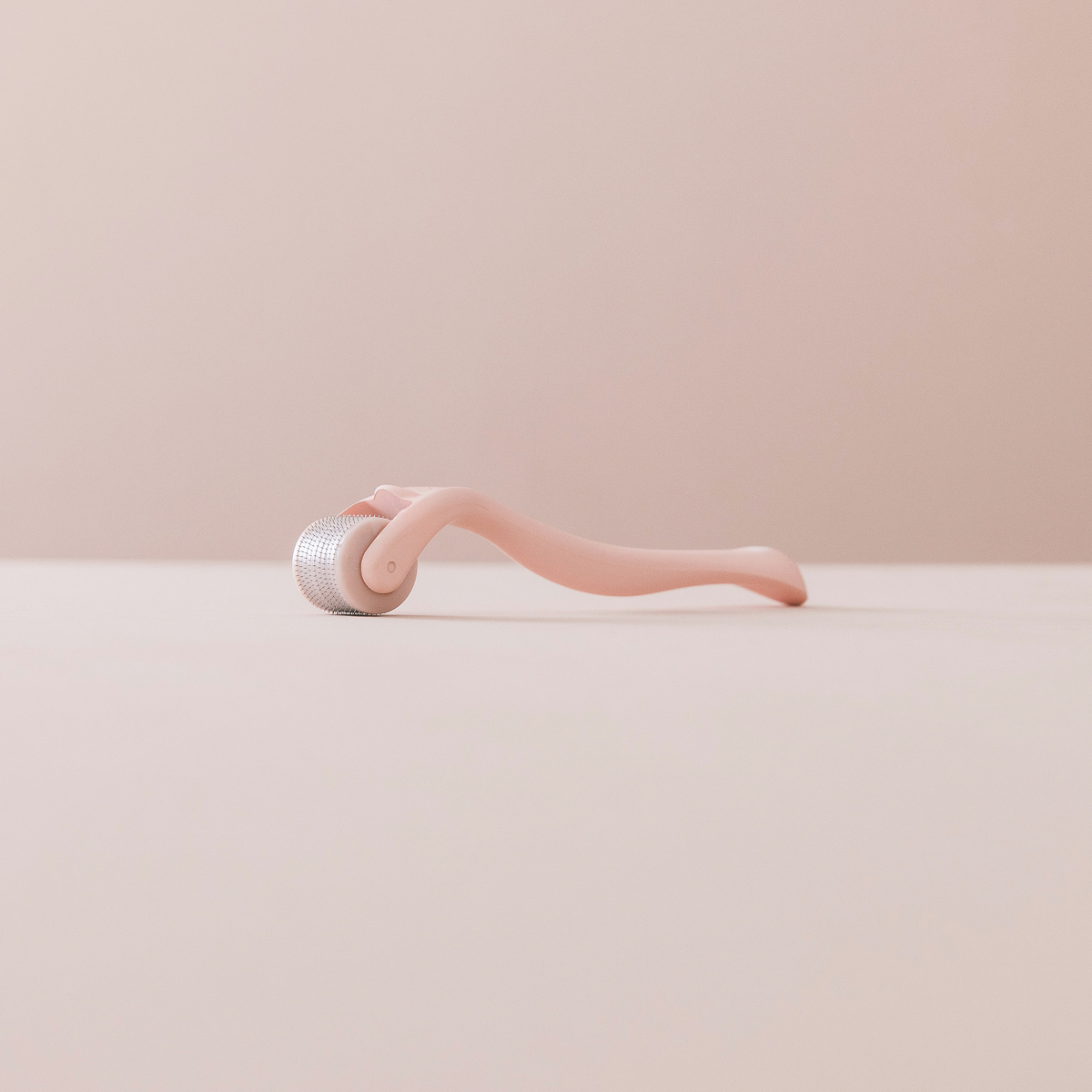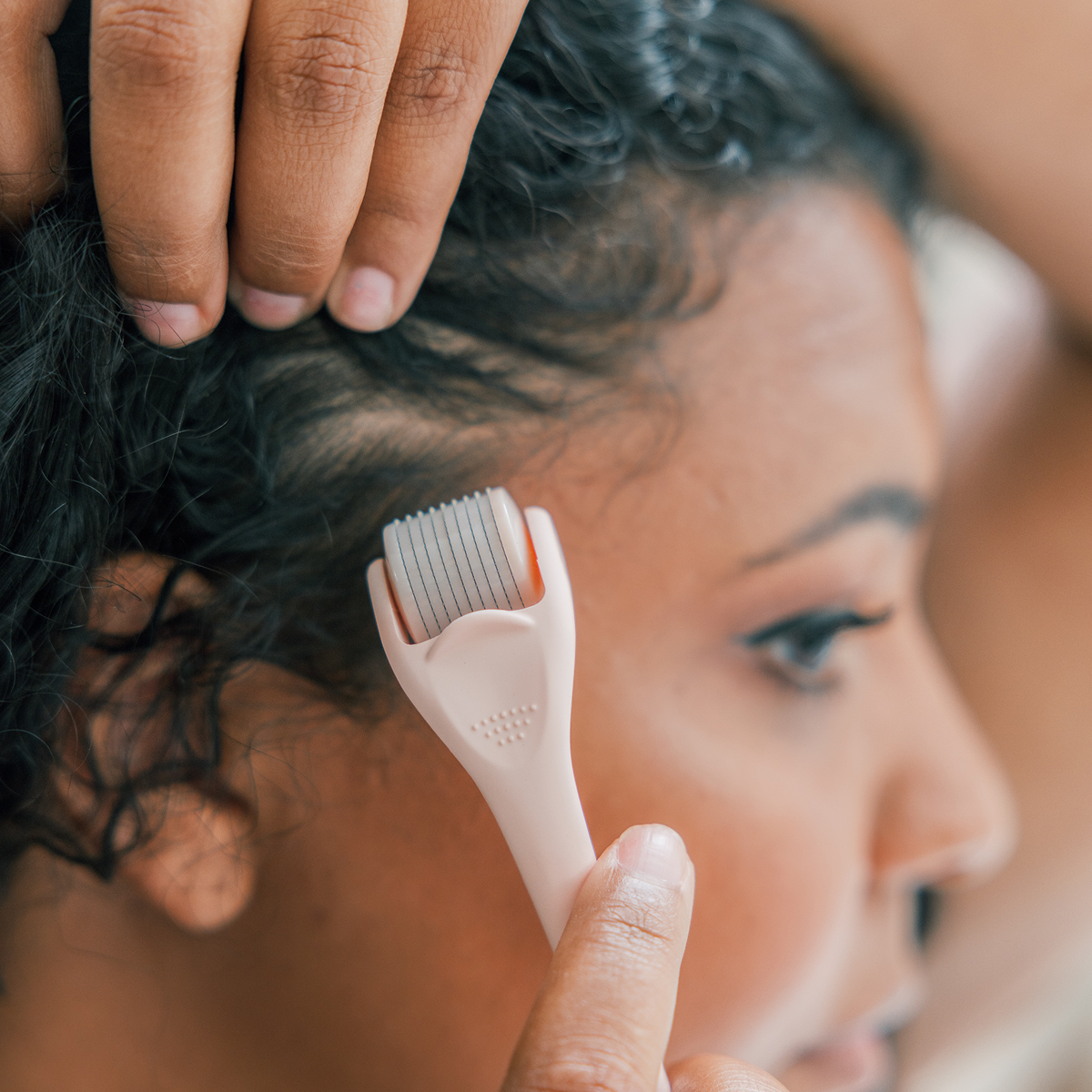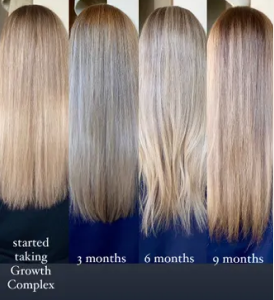Is your hair looking a little limp or damaged? Relax and revamp those strands with an at-home brew to rejuvenate, restore, and even naturally dye your hair!
Who says you need to go to the spa to get softer, shinier hair, or even boosted color? Tea soaks are inexpensive, quick to make, easy to apply, and, best of all, they offer a host of health benefits to help your hair grow stronger and healthier!
Are tea soaks good for your hair?
Absolutely, they are!
There’s a reason people have been drinking tea for centuries – not only does it hydrate, but the natural vitamins and nutrients contained in tea are known for their surprising health benefits.
But tea isn’t just great for your insides – it’s super beneficial for our outsides, too. In fact, there’s a long history of different cultures using herbal or tea baths for a host of benefits. Today, there are lots of teas to choose from with a number of different health and beauty benefits for your hair.
HAIRLOVE’s favorite tea soaks
Peppermint tea for scalp calming
Not only will peppermint tea create a wonderful tingling sensation (especially if you add a couple drops of peppermint essential oil!), but this lovely herb will calm the scalp, helping to balance sebum production, nourishing hair, and even fighting against dandruff.
Green tea for increasing blood flow to the scalp
Because it contains a potent amount of special growth-promoting antioxidants called epigallocatechin-3-gallate (EGCG), green tea is a great brew to choose for a daily scalp massage. It’s thought to increase blood flow to the scalp which provides more oxygen and nutrients, thus stimulating hair growth.
Chamomile tea for blonde hair
Known for its relaxing aroma and anti-inflammatory effects, chamomile is a wonderful tea soak to help calm scalp irritation, soothe itchiness, fight dandruff and more. And, chamomile tea is also known to help brighten up natural highlights in your hair.
Black tea for brown and black hair
Packed with Vitamin C and E, two key nutrients in restoring shine, and creating soft, silky texture, black tea is a must for your tea soak regiment. But blondes beware: black tea also acts as something of a natural hair dye, adding richness and depth back into those darker tones.
Rooibos tea for redheads
Red tea is another tea that’s jam-packed with antioxidants and also carries hair-strengthening key minerals such as zinc, copper, potassium and calcium. Soaking your hair in rooibos will also bring out those warmer tones in your hair.
How to create a tea soak for your hair
Just like you, your hair deserves some rest and rejuvenation, and a great option for naturally restoring shine and luster is as easy as 1-2-3!
In a large, heat-proof bowl, place 2 – 4 tea bags of your desired tea, then pour boiling water over top.
Allow tea to steep for 3 – 5 minutes, stirring occasionally to really pull out the nutrients and the color.
Remove tea bags, then allow the water to cool to room temperature.
How to apply a tea soak to your hair
There are a number of options you have in applying your tea soak, and there’s really no wrong answer as long as you allow your hair to really absorb that tea water for a good amount of time.
Application techniques
The first option is to apply with a spray bottle. Transfer the room temperature tea into a spray bottle, then generously spritz all over your hair, making sure to work it through with your fingers. Allow it to sit for 20-30 minutes, then gently rinse out. This is a great option if you want to combine your tea soak with a scalp massage.
Second, you can pour the tea over your hair. Move your bowl of tea into the shower or bathtub, and gently pour the room temperature tea over your head, working the liquid through your hair, from root to tip! Allow it to sit for 20-30 minutes, then gently rinse out. If you’re planning to take a shower after your tea soak, this can be an easy way to combine the two.
Enjoy healthier hair with DIY tea soaks!
We hope you have fun experimenting with different tea soaks, beauty! Remember to keep smiling, stay hydrated and for a complete guide for better caring for your hair, download our free ebook: The Ultimate Guide to Happier Healthier Hair!
FAQs: The Top Tea Soaks for Softer, More Luxurious Hair
Can tea soaks damage your hair?
Tea soaks are widely considered quite safe for hair. However, it's good to know that it can sometimes dry out your hair if you're using it extremely regularly, especially if you're using a tea with caffeine, like black tea. If you’re seeing drying hair, you may want to consider cutting back on how often you’re using tea soaks or shifting to a caffeine-free tea. Before you start doing a tea soak, it's also a good idea to do a skin patch test to make sure you're not personally sensitive to black tea.
Can I use tea soaks alongside other hair repair options?
Absolutely. There’s no need to stick to tea soaks exclusively if you’re trying to get silky, smooth hair. When you’re done soaking your hair, for example, you may want to finish up your pampering session with argan oil, which can make your hair look even more luscious and beautiful. Using multiple repair options at once can make it more likely that you’ll be able to repair damaged hair.
Do I need to tell my hairstylist about using tea soaks?
It’s always a good idea to let your hairstylist know about anything you’re doing with your hair, even if it’s not a prescription. Hairstylists can use a variety of chemicals on your hair to achieve a desired result, and anything you use on your hair, including tea and over-the-counter styling products, could clash with this process. This doesn’t mean it’s going to damage your hair to use them; your hairstylist should just know as much information as possible for the best results.
We hope you have fun experimenting with different tea soaks, beauty! Remember to keep smiling, stay hydrated and for a complete guide for better caring for your hair, download our free ebook: The Ultimate Guide to Happier Healthier Hair!



























